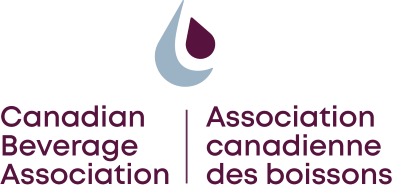MONTREAL, Jan. 24, 2012 /CNW/ - The Association des embouteilleurs de boissons gazeuses du Québec (AEBGQ) and its members respond to recommendations made today by the Coalition Poids.
Obesity is a complex issue and experts will tell you that no single food causes weight gain or obesity. The solution to this very complex issue lies not in targeting a single product or category but in encouraging healthy active lifestyles that balance calories in to calories out.
In response to the Coalition's recommendations:
- In 2011, Health Canada announced that all beverages currently classified as NHPs will move from the NHP category to the food category. This transition is already underway with energy drinks and vitamin waters will follow shortly. The AEBGQ is supportive of this move and is actively working with Health Canada to facilitate it.
- In February 2011, the AEBGQ and its members announced Clear on Calories, a front of pack caloric labeling initiative that was designed to help Canadians understand the caloric content and serving size of the beverages they were choosing. This initiative is currently rolling out across the country and will be completed in the coming year.
- Health Canada has identified caffeine levels that are acceptable for Canadians and energy drinks fall well within those guidelines with about half the caffeine of a typical cup of coffee. In addition Canadians get 90% of their caffeine from coffee and tea. As a result, there is no need for age restrictions for energy drinks or other caffeinated products.
- When considering sugar consumption in Canada would it not be appropriate to look at sugar from all sources? Our members already offer Canadians a wide variety of beverage choices with over 30 per cent of their portfolio consisting of no- and low-calorie products.
- As part of the transition from NHP to foods Health Canada has already established maximum caffeine levels for energy drinks. We feel it is important to educate Canadians on all sources of caffeine rather than single out one specific source. Coffee continues to be Canadians' major source of caffeine with some beverages containing over 400 mg of caffeine per cup, Health Canada's recommended daily maximum.
The Association des embouteilleurs de boissons gazeuses du Québec recognizes that obesity is a complex issue and that it will take everyone working together to bring about change. We have repeatedly reached out to the Coalition Poids to actively engage them in discussions but have been unsuccessful.
The Association des embouteilleurs de boissons gazeuses du Québec is the provincial trade association representing the broad spectrum of brands and companies that manufacture and distribute the majority of non-alcoholic liquid refreshment beverages consumed in Québec.
For French
Martin-Pierre Pelletier
Association des embouteilleurs de boissons gazeuses du Québec
613-797-7200

Share this article